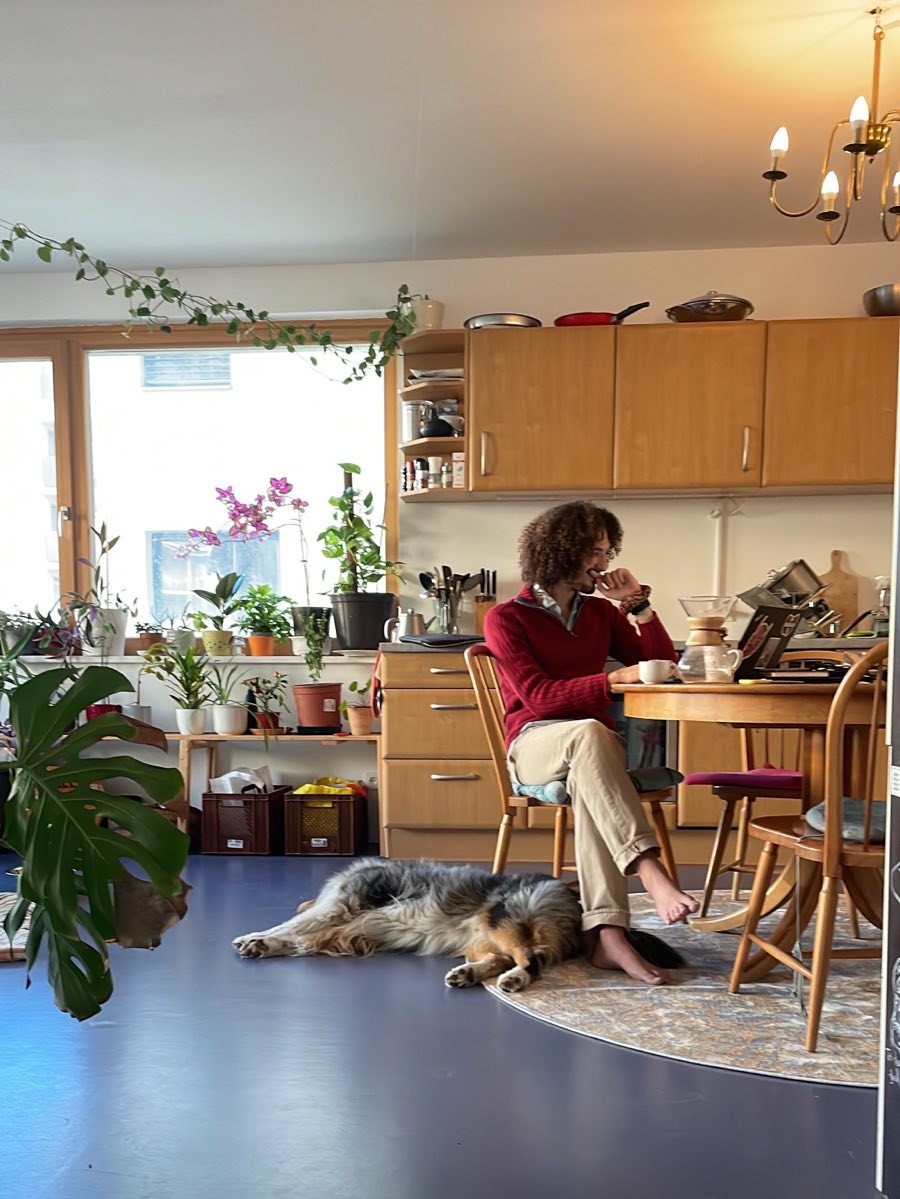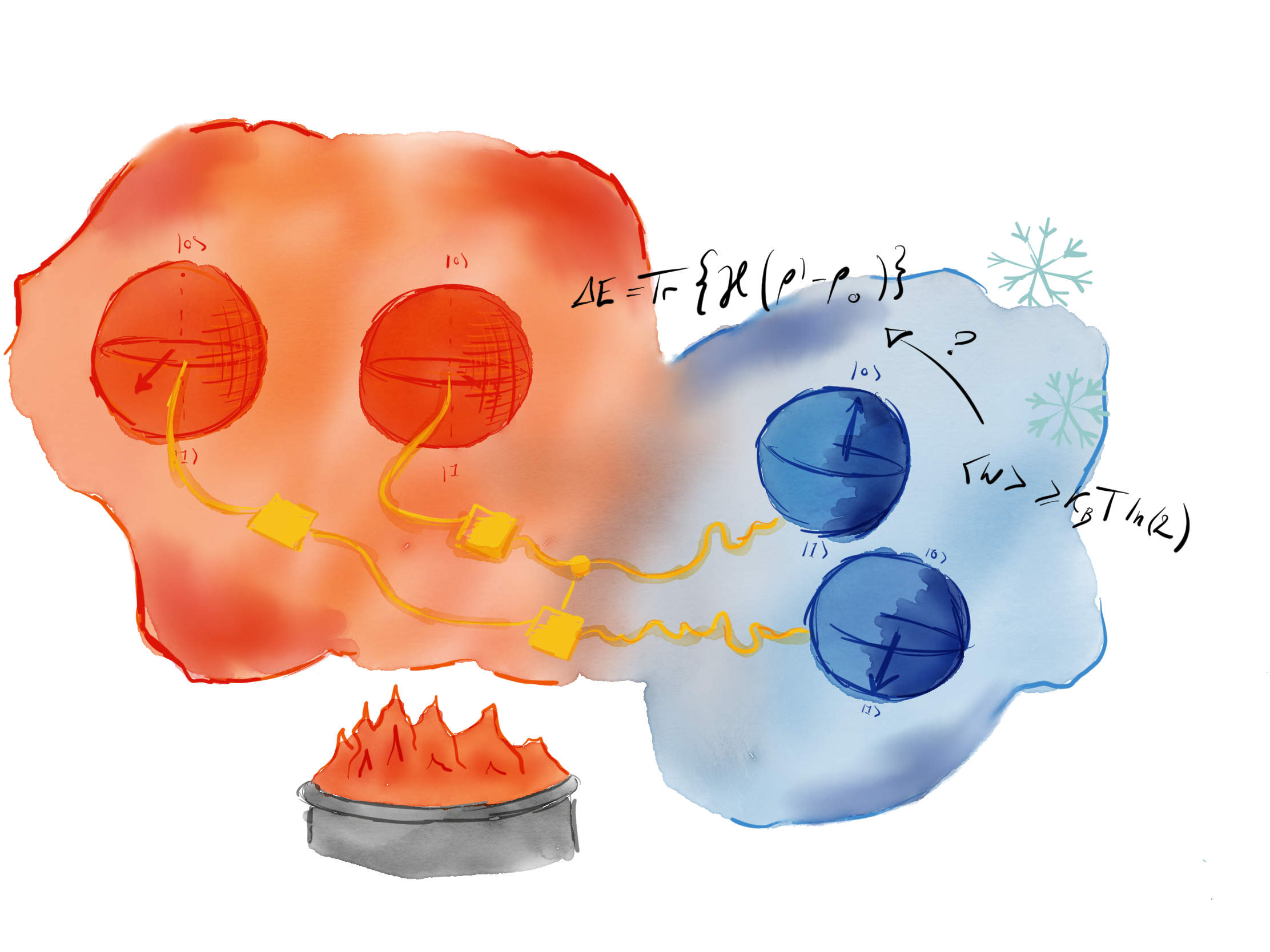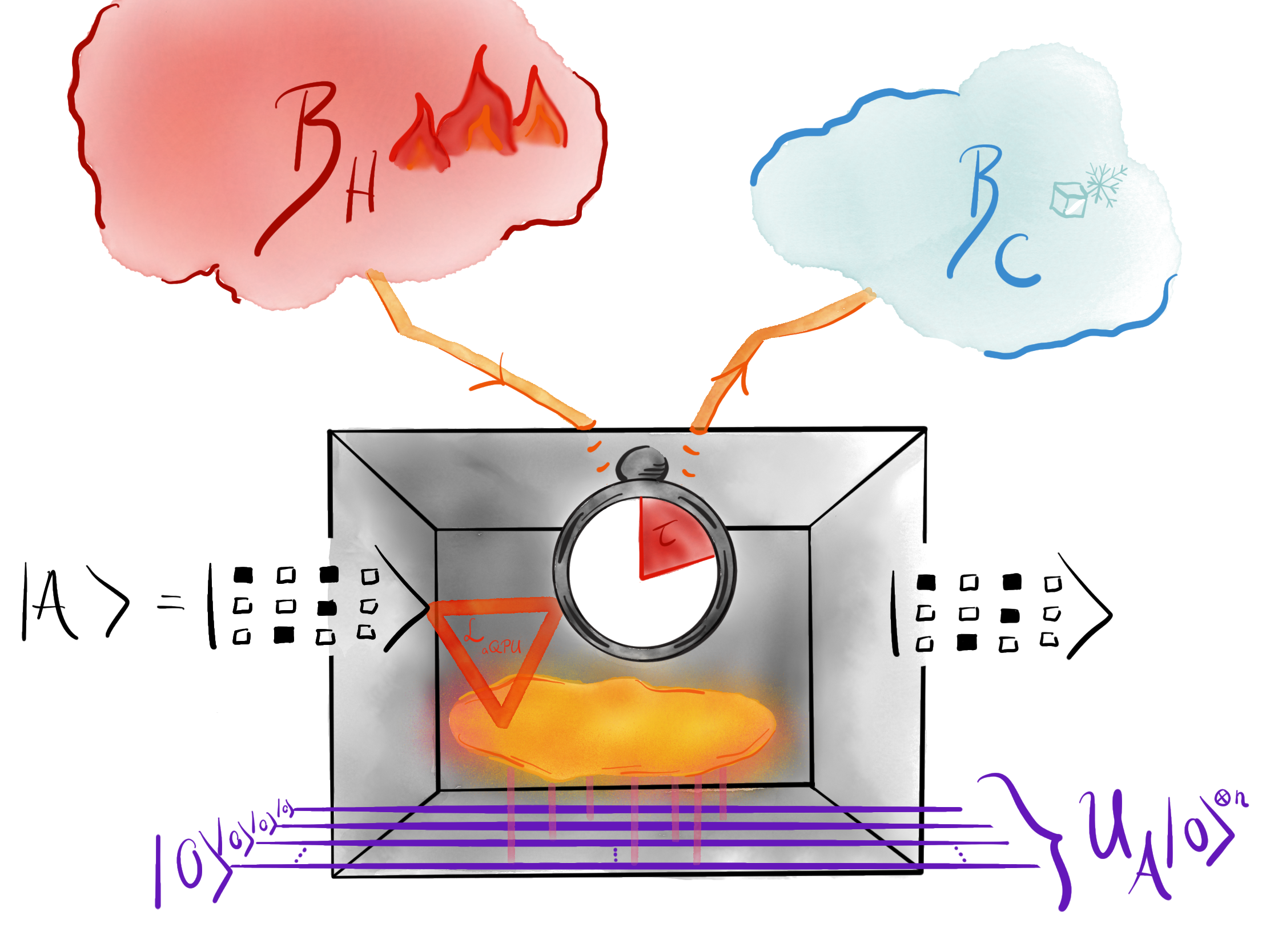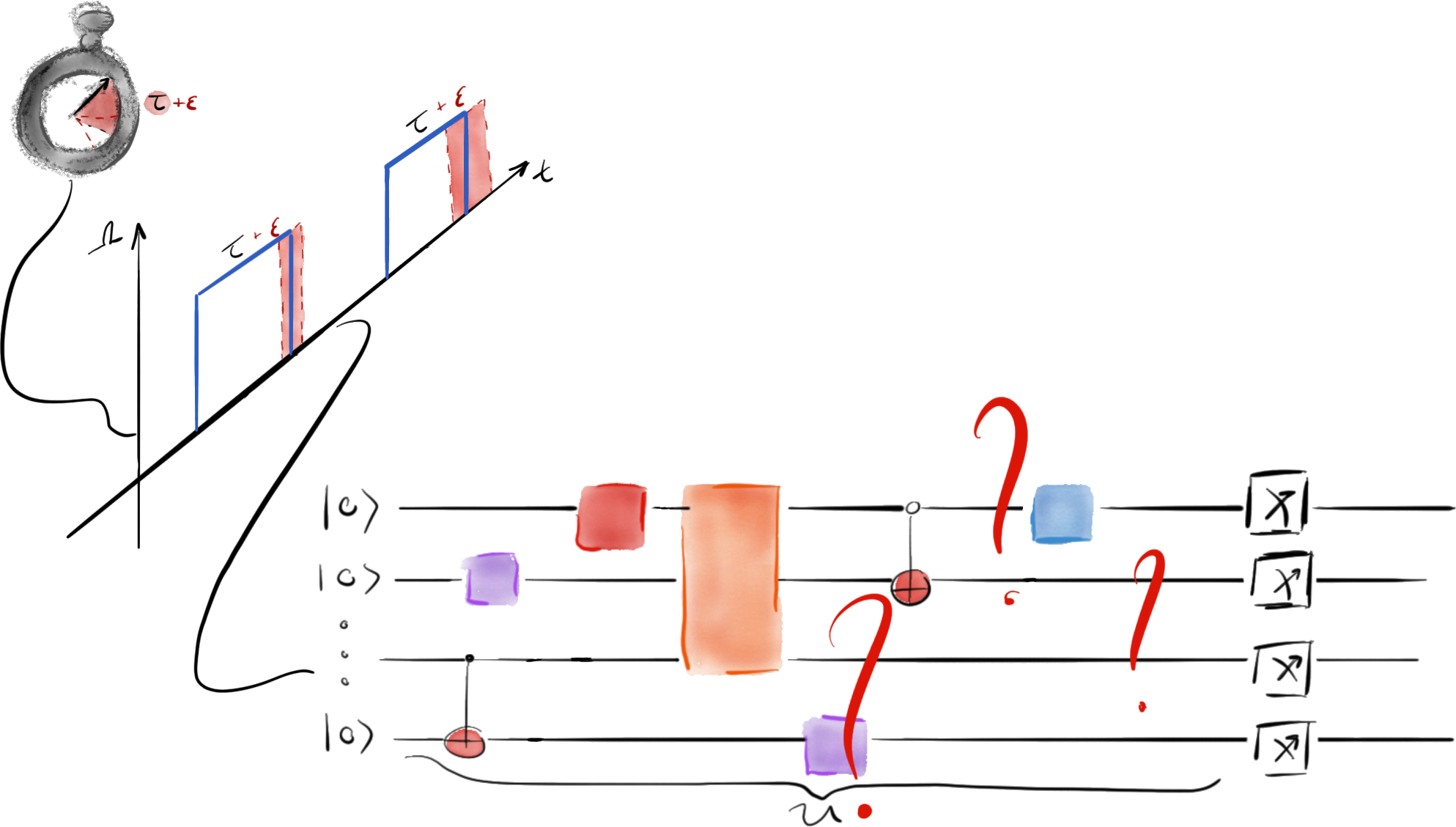
About
Hi! I'm Jake, a fledgling quantum physicist from Malta. I once ran a private education start-up called LearnD, but I think I'm involved in other start-ups elsewhere in spacetime. I am a PhD Student in the QUIT Group at the TU Wien's Atominstitut in Vienna, supervised by the entangled anarchist. Broadly, I'm interested in what fundamental truths Quantum Information can tell us about the Universe and the foundations of Physics all the way from gravity to measurement, and how Quantum Computing can be the tool through which these truths are uncovered. Before this I was a research Master's student working within the Quantumalta Group at the University of Malta funded by an Endeavour Scholarship part of which I spent as a visiting research student with CATS at UCD and QuSys at Trinity College in Dublin. My Curriculum-Vitae is available on request. I used to live at Wohn Projekt Wien, an inspiring project trying to examine how to build sustainable human communities in large cities. I currently live at Schwarzspanierhof, footsteps from where Beethoven died and the beautiful Votivkirche. I'm trying to get back into running right now. If you'd like to, you can read about how I find meaning in being alive, here. I also recently wrote a list of things I want to try to do outside of physics as a way to make sure I don't get too consumed by this work I love doing, you can read that here. Should you wish to support me you can send me cryptocurrency at 0x3D4FA832f5a9C02709A5d961E537DBB309A1F3ab
'The eye--it cannot choose but see; We cannot bid the ear be still; Our bodies feel, where'er they be, Against, or with our will.
From "Expostulation & Reply" by William Wordsworth. Oh! If you're confused that's probably because you're looking for André Xuereb, the first Maltese quantum physicist, my undergrad & MSc supervisor, quantum optomechanical legend and Malta's Ambassador for Digital Affairs amongst other things. NO, we are NOT related, Malta is just that small.Research

Here is a list of manuscripts and publications that I have worked on in reverse chronological order together with a summary and if available slides, recording of a talk and press related to the works. If you'd like to discuss these ideas or you'd like me to give a talk about related work please do reach out. The main questions I've been interested in so far have been related to the physics of computation and the foundations of quantum thermodynamics. But I am generally interested in questions and ideas spanning all of quantum theory. I am happy to mentor undergraduate students interested in these topics, especially if you're a Maltese person making your first quantum steps.
8. Cooling a Qubit with n Others
arXiv:2506.10059 (2025) | with Ben Stratton, Alberto Rolandi, Jinming He, Marcus Huber and Pharnam Bhakshinezhad.
Cooling a quantum system with access to another is a part of the folkloric knowledge of quantum thermodynamics. But whilst it's mathematically well understood in a general sense, what makes this hard or easy in some settings or how to constructively achieve this cooling is often unknown. In this work we focused on the task of cooling a qubit with access to n others, generalising the algorithmic cooling set up and find that this setting is fully characterised by a set of simple inequalities determined my macroscopic quantities like temperature and total energy of the n qubits. Our most interesting finding is that these inequalities allows us to undertand how the sturcture of the cooling unitary depends on the energetic structure of these n qubit e.g. a simple bipartite unitary when the energies of the n qubits scale exponentially in n and a complex n partite unitary when the energy only grows linearly. Along the way, we develop a graph theoretic understand of cooling as a perfect matching problem allowing us to optimise cooling unitaries for different cost functions.
arXiv:2505.15887 (2025) | Solo Work.
Can a heat exchange be used to carry out a computation? In recent months I have been thinking a lot about the maths of cooling qubit systems. Stewing in that, I wondered whether a heat exchange across a set of qubits could be used to determine a decision problem. In this work, I imagine an oracle that has access to thermal qubits at a fixed temperature with the ability to modulate their energetic gap depending on the output of some function they have access to. I then investigate whether an agent with access to a single warmer probe qubit can learn properties of this function by exchanging heat with the oracle's qubits. It turns out the answer is yes! I show this is the case for the Deutsch-Josza and Bernstein-Vazirani problems and invesitgate how the energy and temperature of this probe qubit dictate the distinguishability of properties of the encoded function and the no. of copies of the probe needed to learn the property.
6. What resources does an agent need to acquire knowledge in Quantum Thermodynamics?
arXiv:2410.18167 (2024) | with Ale de Oliveira Jr., Fabien Clivaz, Pharnam Bhakshinezhad and Marcus Huber
What does it mean for an agent to have knowledge of a state in quantum thermodynamics? And if they only have partial knowledge how does it impact their ability to carry out tasks with access to a sysem in that state? In this work we take the perspective that an agent has knowledge of a state if they are able to reconstruct it with partial knowledge being approximate reconstruction. To answer these questions we build a bridge from coarse grained state estimation to a unitary protocol where a dimensionally constrained probe system is correlated with a larger system in an unknown state, such that using the information in the probe the state of the system is reconstructed in a quantum memory. We find results with close connection to quantum cloning and use majorisation theory to make statements about the possibility of exact reconstruction and apply our insights to work extraction and state transformation in quantum thermodynamics.
5. Emergence of a second law of thermodynamics in isolated quantum systems
arXiv:2406.01677 (2024) | Florian Meier, Tom Rivlin, Tiago Debarba, Myself, Marcus Huber, Maximilian P. E. Lock
This work examines how to recover a 2nd law of quantum thermodynamics in the context of closed unitary quantum evolution. We consider the setting of equilibration on average and examine which for which observables the expectation values of a freely evolving state approach those of the equilibrium state. Our main tool here is the entropy of the distribution of expectation values or Shannon Entropy of the Observable which we use to derive bounds on when systems should equilibriate and on their fluctuations. We recover the 2nd law as a statement about the increase of this Shannon Observable Entropy together with the past hypothesis.

arXiv:2402.00111 (2024) | Florian Meier, Marcus Huber, Pauli Erker and Myself
This paper presents a framework called the autonomous Quantum Processing Unit, an autonomous thermal machine formed of a quantum clock, computational target state, and semi-classical states that encode an algorithm one wishes to execute. The framework examines the thermodynamic cost of computation and how physics limits the speed of quantum computation.
3. Quantum Coding with Finite Thermodynamic Resources
arXiv:2311.14561 (2023) | with Tiago Debarba, Marcus Huber, and Paul Erker
This paper investigates the thermodynamic resources required for an agent to compress messages of pure states. The study examines the costs and limitations imposed by finite thermodynamic resources on quantum coding.

2. The Impact of Imperfect Timekeeping on Quantum Control
arXiv:2001.03685 (2023) | Phys. Rev. Lett. 131, 160204 | with Paul Erker, Florian Meier, Mark Mitchison, and Marcus Huber
This paper examines how the quality of the clock an agent has access to limits their ability to perform quantum computations and cool quantum systems. The study looks at the physical constraints and energetic costs of computation imposed by imperfect resources like faulty clocks.
1. Deterministic Quantum Computation with One-Clean-Qubit Model as an Open Quantum System
arXiv:1902.03178 (2023) | Phys. Rev. A 107, 042222 | with Steve Campbell, John Goold, and André Xuereb
By studying the manipulation of classical and quantum information through a thermodynamic lens, this paper aims to understand what it means for a task to be complex and whether this corresponds to great thermodynamic work. The research was conducted in the contexts of quantum information compression and quantum algorithms.
 Currently working on :
- How thermodynamics limits our ability to correct errors in quantum computation.
- Hunting a trade-off between complexity and dissipation in quantum processes.
- Developing a framework within which we can model and estimate the thermodynamic cost of an agent acquiring knowledge of a quantum state in
Currently working on :
- How thermodynamics limits our ability to correct errors in quantum computation.
- Hunting a trade-off between complexity and dissipation in quantum processes.
- Developing a framework within which we can model and estimate the thermodynamic cost of an agent acquiring knowledge of a quantum state in